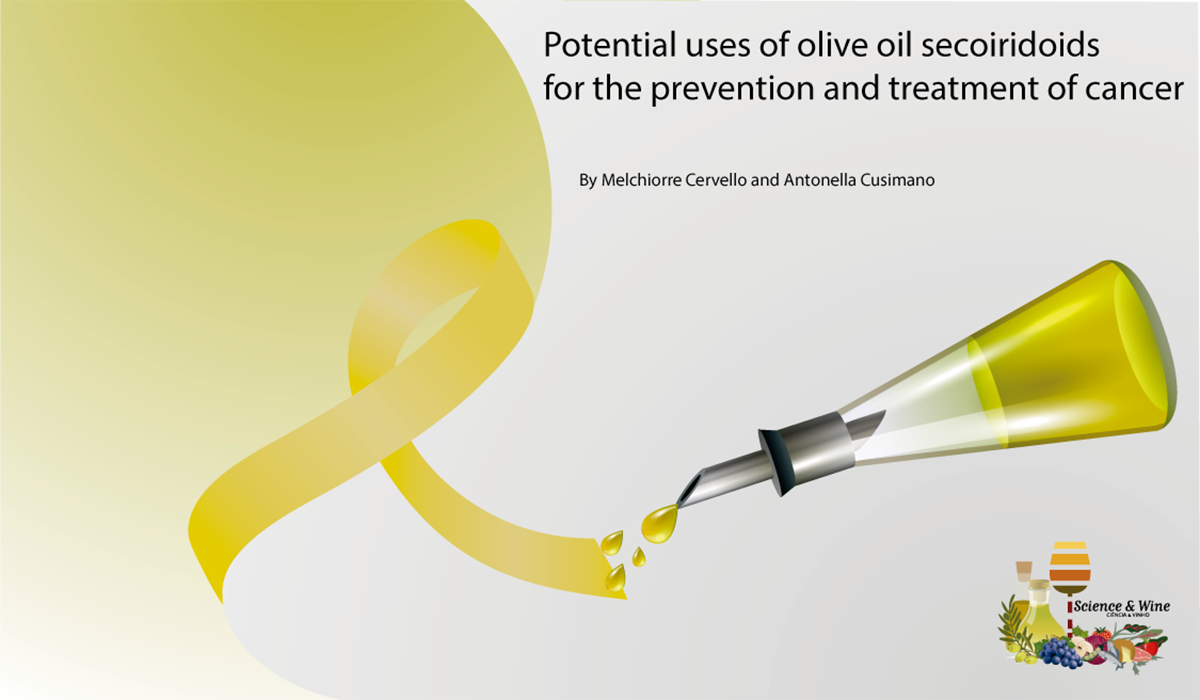The Mediterranean diet (MD) is a combination of foods mainly rich in antioxidants and anti-inflammatory nutrients that have been shown to have many health-enhancing effects. Extra-virgin olive oil (EVOO) is an important component of the MD. The importance of EVOO can be attributed to phenolic compounds, represented by phenolic alcohols, hydroxytyrosol, and tyrosol, and to secoiridoids, which include oleocanthal, oleacein, oleuropein, and ligstroside. This post summarizes the most recent findings regarding the pharmacological properties, molecular targets, and action mechanisms of secoiridoids, focusing attention on their preventive and anti-cancer activities. The prospects for their possible use in human cancer prevention and treatment is also discussed.
